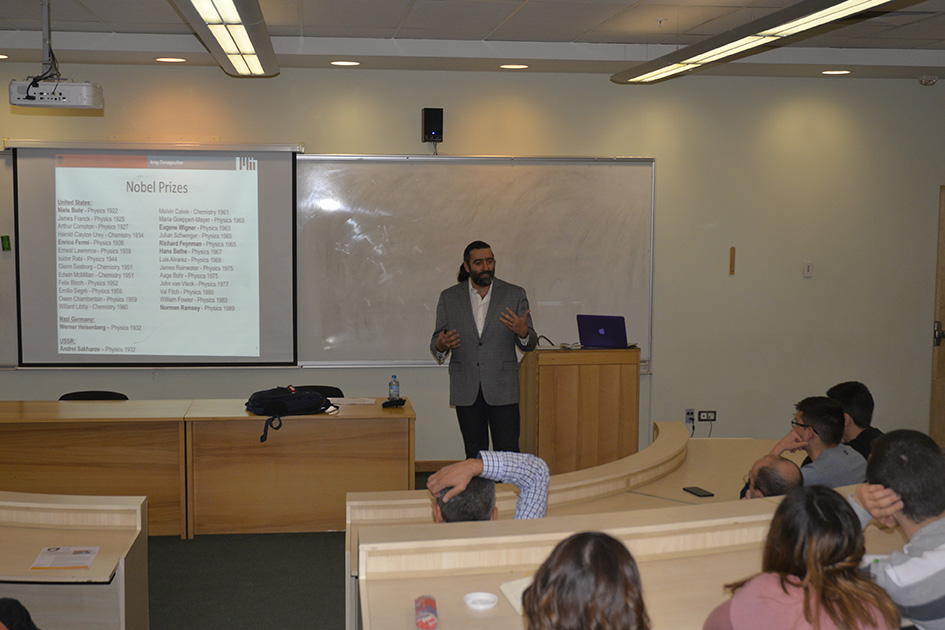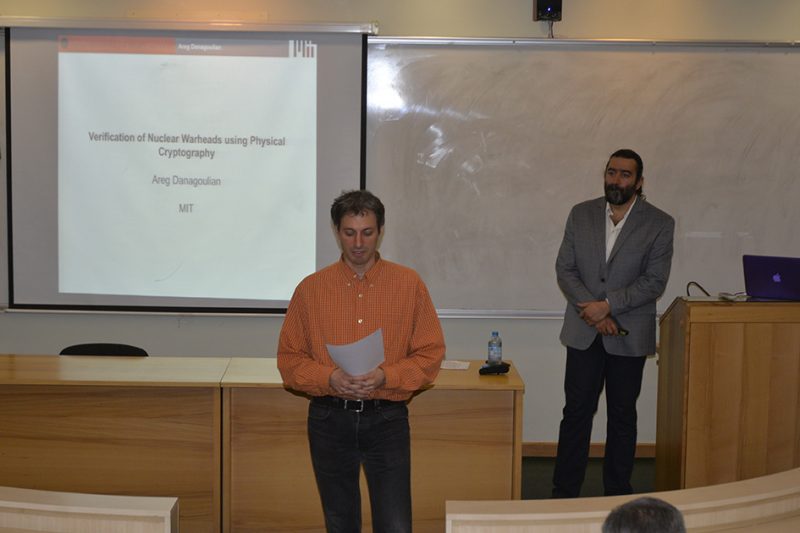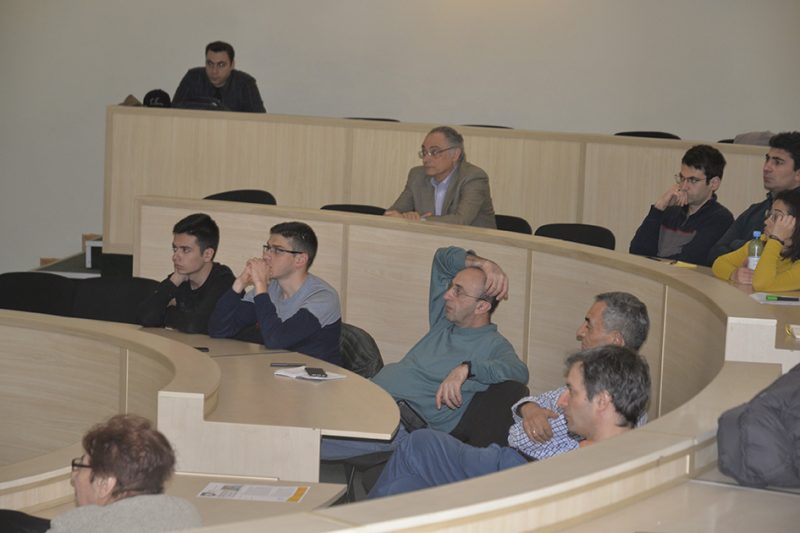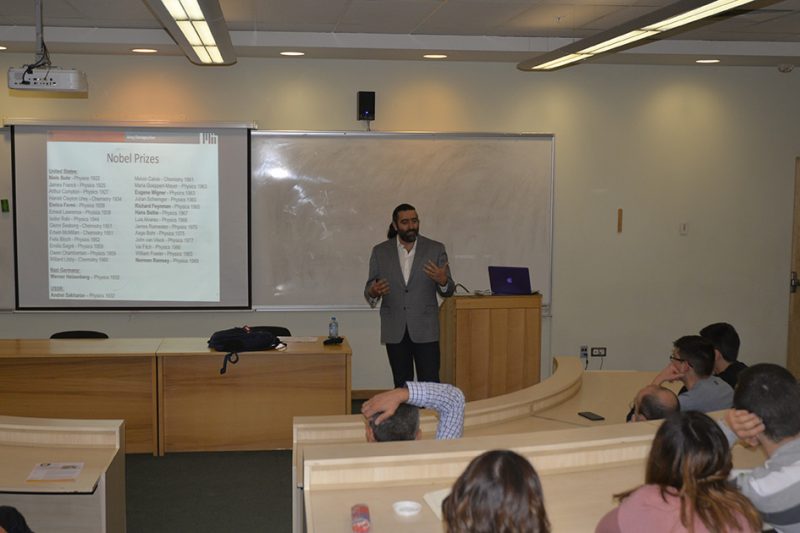
Public Lecture: Verification of Nuclear Warheads Using Physical Cryptography
2 min readYEREVAN, Armenia— On March 27, the Zaven & Sonia Akian College of Science and Engineering (CSE) of the American University of Armenia (AUA) hosted Mr. Areg Danagoulian, who addressed the abundance of nuclear weapons in the world as one of the biggest dangers to human civilization. He suggested that ambitious, aggressive nuclear disarmament treaties are necessary to reduce this existential threat.
Mr. Danagoulian emphasized that new technologies are vital in enabling the verification of those treaties while protecting the nuclear secrets of the participants, in order to make those treaties effective. This procedure entails verifying the authenticity of the warheads slated for elimination before proceeding with their dismantlement.
The speaker then went on to share his team’s experience at the Massachusetts Institute of Technology (MIT), which worked on a physical cryptographic system that uses Nuclear Resonance Fluorescence (NRF) in transmission mode to produce a physical “hash” of the weapon. This physically encrypted data is then compared to that from measurements taken on another weapon of known authenticity: a successful match will indicate that the first weapon is also authentic. Mr. Danagoulian explained that since the comparison is done in a cryptographic domain, no direct information about either weapon is revealed. The seminar also included a discussion of the history of nuclear weapons and arms control treaties, as well as a description of the cryptographic verification concept.
Mr. Areg Danagoulian is an assistant professor at MIT’s Department of Nuclear Science and Engineering. He graduated from PhysMath School in Yerevan in 1993, after which he studied physics at MIT. After completing his Ph.D. in experimental nuclear physics in 2006 at the University of Illinois at Urbana-Champaign, Mr. Danagoulian moved to Los Alamos National Laboratory, where he worked on a variety of research programs including stockpile stewardship, physics beyond the standard model, and nuclear security. He then worked for six years in industry, developing an award-winning active interrogation system that uses fast neutrons to detect fissionable materials, such as uranium and plutonium, hidden in cargo containers.
In addition to treaty verification technologies, Mr. Danagoulian’s research interests include advanced methods for screening of commercial cargoes for the presence of nuclear materials.
Founded in 1991, the American University of Armenia (AUA) is a private, independent university located in Yerevan, Armenia and affiliated with the University of California. AUA provides a global education in Armenia and the region, offering high-quality, graduate and undergraduate studies, encouraging civic engagement, and promoting public service and democratic values.



